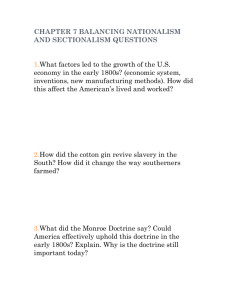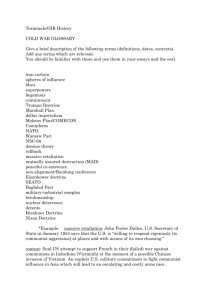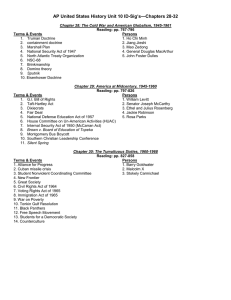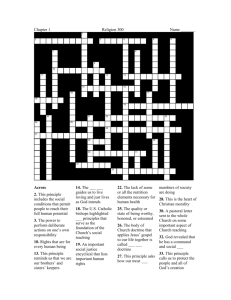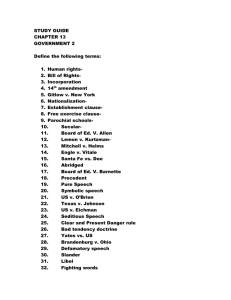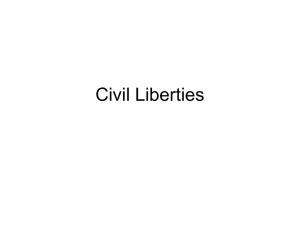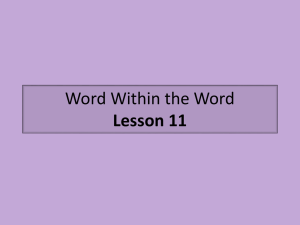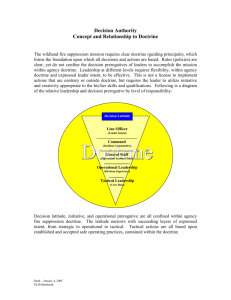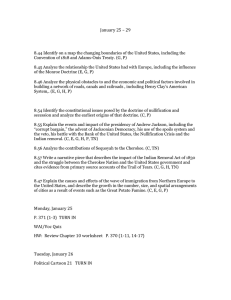Modern World History Vocabulary
advertisement
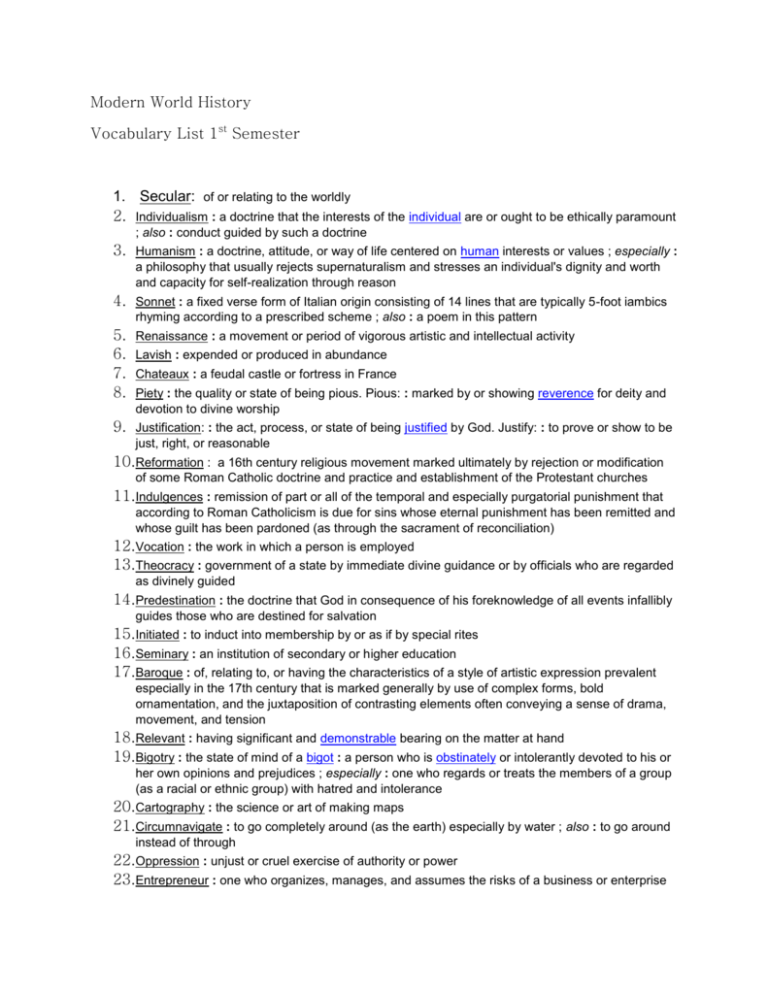
Modern World History Vocabulary List 1st Semester 1. Secular: of or relating to the worldly 2. Individualism : a doctrine that the interests of the individual are or ought to be ethically paramount ; also : conduct guided by such a doctrine 3. Humanism : a doctrine, attitude, or way of life centered on human interests or values ; especially : a philosophy that usually rejects supernaturalism and stresses an individual's dignity and worth and capacity for self-realization through reason 4. Sonnet : a fixed verse form of Italian origin consisting of 14 lines that are typically 5-foot iambics rhyming according to a prescribed scheme ; also : a poem in this pattern 5. 6. 7. 8. Renaissance : a movement or period of vigorous artistic and intellectual activity Lavish : expended or produced in abundance Chateaux : a feudal castle or fortress in France Piety : the quality or state of being pious. Pious: : marked by or showing reverence for deity and devotion to divine worship 9. Justification: : the act, process, or state of being justified by God. Justify: : to prove or show to be just, right, or reasonable 10.Reformation : a 16th century religious movement marked ultimately by rejection or modification of some Roman Catholic doctrine and practice and establishment of the Protestant churches 11.Indulgences : remission of part or all of the temporal and especially purgatorial punishment that according to Roman Catholicism is due for sins whose eternal punishment has been remitted and whose guilt has been pardoned (as through the sacrament of reconciliation) 12.Vocation : the work in which a person is employed 13.Theocracy : government of a state by immediate divine guidance or by officials who are regarded as divinely guided 14.Predestination : the doctrine that God in consequence of his foreknowledge of all events infallibly guides those who are destined for salvation 15.Initiated : to induct into membership by or as if by special rites 16.Seminary : an institution of secondary or higher education 17.Baroque : of, relating to, or having the characteristics of a style of artistic expression prevalent especially in the 17th century that is marked generally by use of complex forms, bold ornamentation, and the juxtaposition of contrasting elements often conveying a sense of drama, movement, and tension 18.Relevant : having significant and demonstrable bearing on the matter at hand 19.Bigotry : the state of mind of a bigot : a person who is obstinately or intolerantly devoted to his or her own opinions and prejudices ; especially : one who regards or treats the members of a group (as a racial or ethnic group) with hatred and intolerance 20.Cartography : the science or art of making maps 21.Circumnavigate : to go completely around (as the earth) especially by water ; also : to go around instead of through 22.Oppression : unjust or cruel exercise of authority or power 23.Entrepreneur : one who organizes, manages, and assumes the risks of a business or enterprise 24.Absolution : the act of absolving (: to set free from an obligation or the consequences of guilt); specifically : a remission of sins pronounced by a priest (as in the sacrament of reconciliation) 25.Armada : a fleet of warships 26.Inflation : a continuing rise in the general price level usually attributed to an increase in the volume of money and credit relative to available goods and services 27.Hypothesis : a tentative assumption made in order to draw out and test its logical or empirical consequences 28.Pacifism : opposition to war or violence as a means of settling disputes ; specifically : refusal to bear arms on moral or religious grounds 29.Enlightened : freed from ignorance and misinformation 30.Despot : a ruler with absolute power and authority
